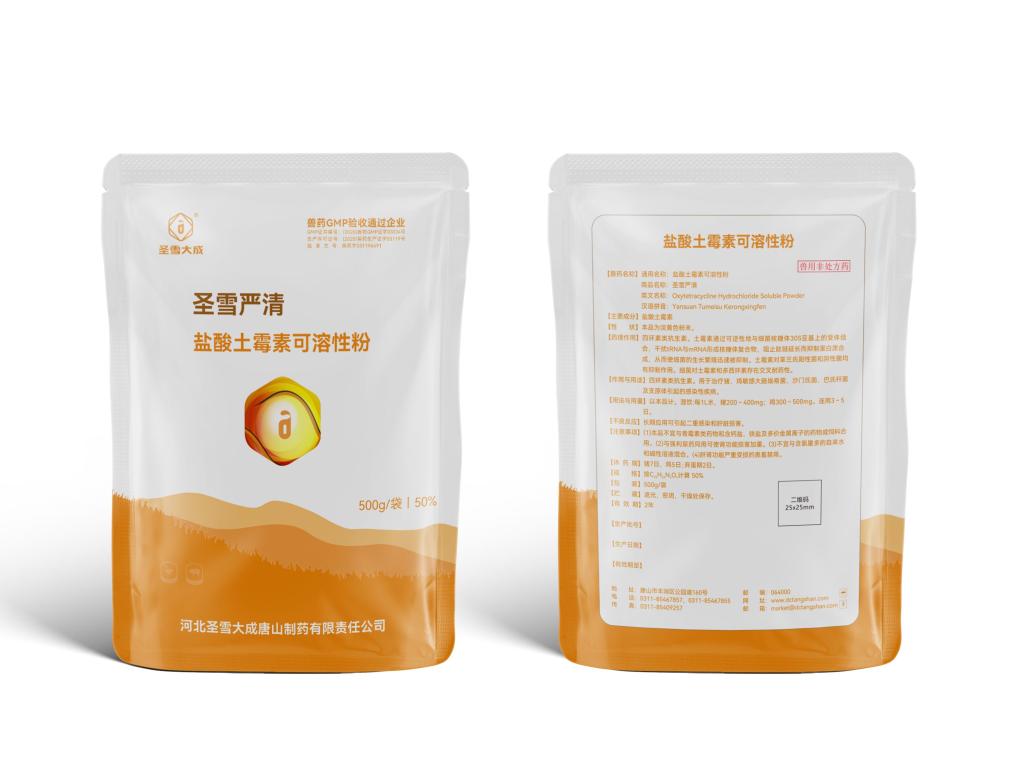Tel:+8618231198596

News
 CONTACT
CONTACT
 CONTACT
CONTACT
- Linkman:Linda Yao
- Tel: +8618231198596
- Email:linda.yao@dcpharma.cn
- Linkman:CHARLES.WANG
- Department:Overseas
- Tel: 0086 0311-85537378 0086 0311-85539701
News
Current Position:
Home >
News
>Farmers share experiences and insights on integrating Oxytetracycline.
Farmers share experiences and insights on integrating Oxytetracycline.
TIME:2023-12-21
1. Introduction: Balancing Sustainability and Animal Health in Agriculture:
The pursuit of sustainable farming practices involves a delicate balance between ensuring the health and well-being of livestock and minimizing environmental impact. Oxytetracycline, a widely used antibiotic in veterinary medicine, is a tool that farmers often incorporate into their practices. This article aims to delve into the experiences and insights of farmers who have embraced oxytetracycline within the framework of sustainable agriculture.
2. Sustainable Agriculture: A Holistic Approach to Farming:
Sustainable agriculture emphasizes a holistic approach that considers economic viability, social responsibility, and environmental conservation. Farmers adopting sustainable practices prioritize soil health, biodiversity, and animal welfare while seeking solutions that minimize the ecological footprint of their operations. The integration of oxytetracycline into these practices requires a thoughtful and informed approach.
3. Case Study 1: Oxytetracycline in Organic Farming – A Balancing Act:
Organic farming places a premium on avoiding synthetic chemicals, including antibiotics. However, certain situations may warrant the use of oxytetracycline to address specific health challenges in livestock. Farmers share their experiences in navigating the regulatory landscape, maintaining organic certification, and integrating oxytetracycline judiciously within the principles of organic farming.
4. Case Study 2: Oxytetracycline and Pasture-Based Livestock Management:
Pasture-based livestock systems are integral to sustainable farming, promoting animal welfare and environmentally friendly practices. Farmers employing these systems discuss their experiences with oxytetracycline in preventing and managing diseases in free-range and grass-fed livestock. The challenges of maintaining herd health without compromising the principles of pasture-based management are explored.
5. Case Study 3: Oxytetracycline as a Tool in Integrated Pest Management:
Integrated Pest Management (IPM) involves a multifaceted approach to pest control that minimizes reliance on chemical interventions. Farmers engaged in IPM share insights on the strategic use of oxytetracycline to control diseases transmitted by pests. The role of oxytetracycline in preventing disease outbreaks and preserving crop and livestock health within an IPM framework is discussed.
6. Benefits and Challenges: Farmer Perspectives on Oxytetracycline Use:
Farmers articulate the perceived benefits and challenges associated with the use of oxytetracycline in sustainable farming. Improved animal health, reduced economic losses, and the ability to address specific health issues are highlighted as advantages. Challenges include regulatory compliance, the potential for antibiotic resistance, and the need for continuous education on responsible use.
7. Responsible Antibiotic Use: Farmer Practices for Minimizing Environmental Impact:
Responsible antibiotic use is a cornerstone of sustainable farming. Farmers share their practices for minimizing the environmental impact of oxytetracycline, including proper dosage administration, veterinary oversight, and waste management strategies. These insights underscore the commitment of farmers to balance animal health with environmental stewardship.
8. Collaboration with Veterinarians and Researchers: Enhancing Farm Health:
Farmers emphasize the importance of collaboration with veterinarians and researchers in optimizing oxytetracycline use. Through joint efforts, farmers gain access to expertise, research-backed recommendations, and innovative solutions. This collaborative approach contributes to a more comprehensive understanding of oxytetracycline's role in sustainable farming.
9. The Role of Education and Training: Empowering Farmers for Informed Decision-Making:
Education and training emerge as crucial components in empowering farmers for informed decision-making. Farmers share their experiences with training programs, workshops, and resources that enhance their understanding of oxytetracycline use. Knowledgeable farmers are better equipped to make decisions aligned with sustainability goals.
10. Future Considerations: Evolving Practices and Innovations in Sustainable Farming:
As sustainable farming practices evolve, so do the considerations surrounding oxytetracycline use. Farmers discuss their openness to adopting alternative therapies, advancements in vaccine development, and emerging technologies that may reduce reliance on antibiotics. The evolving landscape of sustainable farming requires continual adaptation and innovation.
11. Conclusion: Nurturing Agriculture's Balance with Oxytetracycline:
In conclusion, the integration of oxytetracycline into sustainable farming practices is a dynamic process that requires careful consideration, collaboration, and a commitment to responsible use. Farmers, as stewards of the land and caretakers of livestock, play a vital role in striking a balance between animal health and environmental sustainability. By sharing their experiences and insights, farmers contribute to a collective understanding of how oxytetracycline can be judiciously employed within the context of sustainable agriculture, fostering a future where farming practices nurture the well-being of both animals and the environment.
- Tel:+8618231198596
- Whatsapp:18231198596
- Chat With Skype







